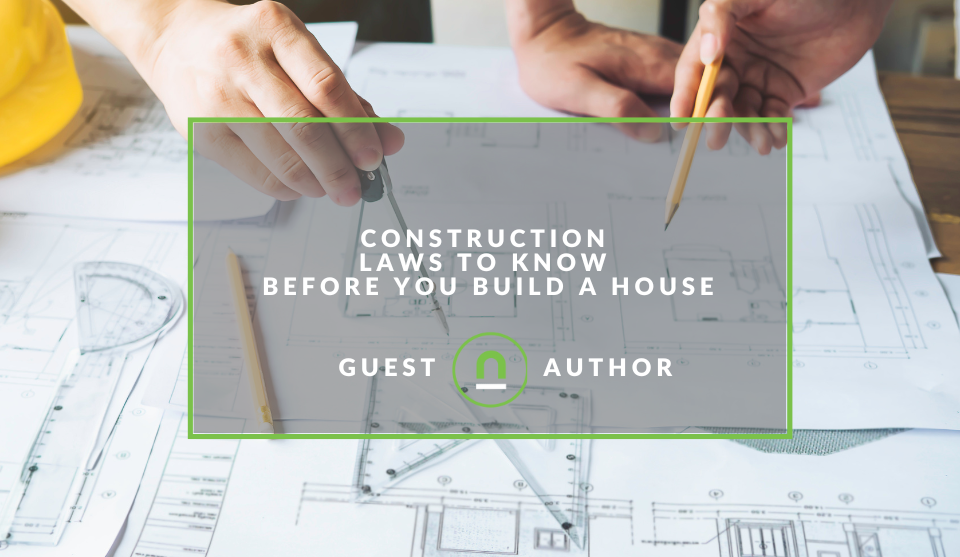Recent posts

Ace of Trades
The South African Industrial Tech Revolution
05 January 2026

nichemarket Advice
Why Video Production Companies Still Outshine AI
24 December 2025

Press Releases
Where You Can Find International Remote Jobs For South Africans
23 December 2025

Money Talks
Why Cross-Border Payments Are Slow, Tedious, and Expensive
17 December 2025
Popular posts
Extravaganza
Trending Music Hashtags To Get Your Posts Noticed
24 August 2018
Geek Chic
How To Fix iPhone/iPad Only Charging In Certain Positions
05 July 2020
Extravaganza
Trending Wedding Hashtags To Get Your Posts Noticed
18 September 2018
Money Talks
How To Find Coupons & Vouchers Online In South Africa
28 March 2019
Construction Laws to Know Before You Build a House
20 July 2023 | 0 comments | Posted by Mark Bingham in Constructive Criticism
Building a house is an exciting venture, but it involves navigating a complex web of construction laws and regulations. These laws exist to ensure safety, quality, and compliance with local building standards. Failing to understand and adhere to these regulations can lead to costly delays, fines, and even legal issues.
Before embarking on your dream home construction journey, it is essential to educate yourself about the crucial construction laws you must know. In this article, we will discuss some of the most important construction laws that homeowners and builders should be aware of.
Building permits and zoning laws
One of the primary construction laws you need to understand is the requirement for building permits. In most jurisdictions, obtaining a building permit is mandatory before starting any construction project. The permit process ensures that your project complies with safety codes and local zoning laws.
Zoning laws dictate how you can use your property, such as whether it can be residential or commercial, the maximum building height, setbacks from property lines, and more. Failing to secure the necessary permits can lead to fines and even stop-work orders.
Construction contracts and licensing
Before hiring a contractor, it's crucial to have a written construction contract in place. The contract should clearly outline the scope of work, project timeline, payment schedule, and any warranties or guarantees. A well-drafted contract protects both parties involved and minimizes the risk of disputes during or after the construction process.
Additionally, ensure that your chosen contractor holds the appropriate licenses and certifications required by local and state authorities.
Building codes and standards
Building codes are a set of regulations that specify the minimum standards for construction and safety. These codes cover various aspects of the construction process, including structural integrity, electrical systems, plumbing, fire safety, and energy efficiency.
Familiarize yourself with the specific building codes applicable to your area and ensure that your project complies with these standards. Non-compliance can lead to serious safety hazards and legal consequences.
Environmental regulations
Environmental laws play a crucial role in construction, especially when it comes to land development and site preparation. Some areas may be protected due to endangered species, wetlands, or historical significance.
Before starting construction, you must conduct environmental assessments to identify any potential impacts on the surrounding ecosystem. Failure to comply with environmental regulations can result in hefty fines and project delays.
Health and safety regulations
The construction industry is inherently hazardous, and safety should always be a top priority. Health and safety regulations dictate the proper use of personal protective equipment (PPE), safe work practices, and guidelines for handling hazardous materials. All workers involved in the construction project should receive proper safety training to minimize the risk of accidents and injuries on the job site.
Accessibility laws
In many countries, accessibility laws ensure that buildings are designed and constructed to be inclusive of people with disabilities. These laws may cover features such as wheelchair ramps, accessible restrooms, and designated parking spaces.
Compliance with accessibility laws is essential to ensure that your home can be enjoyed by everyone, regardless of their physical abilities.
Noise and nuisance regulations
Construction projects can generate significant noise and disturbances to neighbouring properties. Many municipalities have noise ordinances in place to limit construction noise during certain hours to minimize disruptions to residents.
Additionally, construction activities should not create nuisances that negatively impact the community, such as excessive dust, vibration, or light pollution.
Insurance and Liability
Construction projects involve various risks, including property damage and accidents. It's essential to have adequate insurance coverage to protect yourself and your investment. Construction liability insurance can safeguard you against potential lawsuits arising from injuries or property damage during the construction process.
In case of a dispute, it's best to have someone professional by your side. For instance, if you have issues in Sydney, you should always look for a trustworthy building dispute lawyer from Sydney. A local lawyer will assist you much better, and they will know exactly how to solve the issue to suit you.
Inspection and quality control
Inspections are a vital part of the construction process. Local building officials will conduct inspections at various stages to ensure that your project complies with the approved plans and building codes. Engaging in regular quality control measures during construction can help identify and rectify any issues before they become major problems.
Payment and lien laws
If you are hiring a contractor or subcontractor, it's essential to understand the payment and lien laws in your area. These laws govern the payment schedule, retainage, and procedures for filing and enforcing mechanics' liens. Complying with these laws protects you from potential disputes and financial liabilities.
Conclusion
Building a house is a significant undertaking that requires a thorough understanding of construction laws and regulations. Familiarising yourself with building permits, zoning laws, building codes, environmental regulations, and other legal requirements will help ensure a smoother construction process and protect you from potential legal and financial issues.
Consulting with professionals, such as lawyers, contractors, and architects, can provide valuable insights and guidance as you embark on your home construction journey.
Tell us your story
Would you like to write for nichemarket just like Mark has? Find out how to submit a guest post and when you're ready, you can contact us.
Are you looking to promote your business?
Real estate businesses can create their free business listing on nichemarket. The more information you provide about your business, the easier it will be for your customers to find you online.
Registering with nichemarket is easy; all you will need to do is head over to our sign-up form and follow the instructions. If you require a more detailed guide on how to create your profile or your listing, then we highly recommend you check out the following articles.
Recommended reading
If you enjoyed this post and have time to spare, why not check out these related posts and dive deeper down the rabbit hole that is homeownership.
You might also like
Why Video Production Companies Still Outshine AI
24 December 2025
Posted by Che Kohler in nichemarket Advice
A review of traditional video production versus generative AI videos and why businesses might be tempted to go the cheaper route, but it might cost y...
Read moreThe South African VAT Threshold Chokehold
05 December 2025
Posted by Che Kohler in nichemarket Advice
How South Africa's R1 Million Limit Keeps Small Businesses From Developing, And Why Even Adjusting For Inflation Alone Would Free Up Burdens On Small...
Read more{{comment.sUserName}}
{{comment.iDayLastEdit}} day ago
{{comment.iDayLastEdit}} days ago
 {{blogcategory.sCategoryName}}
{{blogcategory.sCategoryName}}

